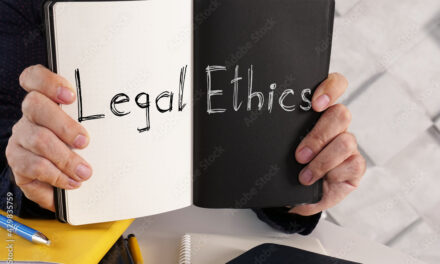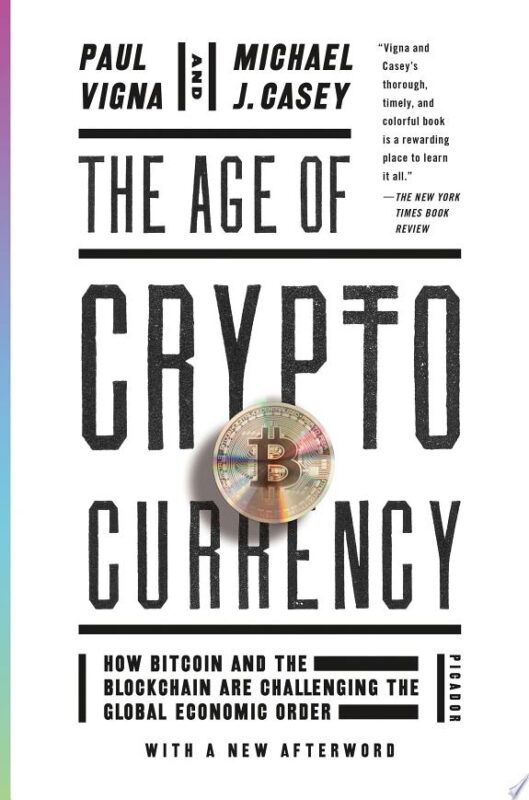ON BULLSHIT: A SHORT AND VIVID TREATISE FOR LAWYERS
Michael Sean Quinn*
Harry G. Frankfurt, a distinguished writer and Emeritus Professor of Philosophy at Princeton University wrote a very short book in 2005 entitled ON BULLSHIT. It was quite popular as philosophy books go, and has been followed up with one entitled ON TRUTH and another entitled ON INEQUALITY, the latter of which is just out.** Former Professor does not make any explicit, direct reference to lawyers in ON BULLSHIT, so I will take his place. In order to do so, I will say a little bit about, and quote a lot, from his excellent book, and then I will apply it–granted superficially–to lawyers. (**In ON INEQUALITY, Frankfurt argues, among other things, that the political demand for economic equality may not be such a hot idea and has philosophical, humanitarian consequences that are profoundly undesirable. No economic–free-market–absolutist is he, however. His view also has some implications for lawyer happiness, self-exploration, and depth. I have written a bit about it elsewhere on this blog series. )
FRANKFURT’S GENERAL VIEW
The book begins with this: “One of the most salient features of our culture is that there is so much bullshit.” The book ends, roughly speaking, with this: “The contemporary proliferation of bullshit has deeper sources [than simply the amount of communication that is going on, much of it on-line, in the so called “Digital [or, “Internet”] Age”], in various forms of skepticism which deny that we can have any reliable access to an objective reality, and which therefore reject the possibility of knowing how things truly are. These ‘antirealist’ doctrines undermine confidence in the value of disinterested efforts to determine what is true and what is false, and even in the intelligibility of the notion of objective inquiry.”
(In my opinion, the kinds of skepticisms to which Frankfurt refers have also created the opportunity for people to believe absurd and corruptive doctrines as that there is such a thing as “my truth” and “your truth,” where they contradict one another. The truth is that for any given proposition and its denial, both cannot be true, as they say, “period.” But that’s a different story.
Except for describing, explaining, and expounding Frankfurt’s positions, I am not here interested in his deep, and profoundly true, philosophical insights. I am interested in the implications of his views–what might be called his theory of knowledge or his epistemology–for the nature of lawyering, when it is conceived as an adversarial activity in which excellent rhetoric plays a crucial role and lawyers are ethically, legally, and morally obligated to pursue their clients’ interest, by any legal means. (And to some extent the same is true of transactional lawyering when negotiation plays a significant role.”)
Bullshit, according to Frankfurt, is to be distinguished from lying in that the bullshitter need not be trying to lie or deceive, although he is often doing exactly that (or, at least, sort of that). It’s best, in analyzing the idea of bullshit, to think about what it is to be a bullshitter–bullshit being what comes out of a bullshitter’s mouth (or off his “pen”) when he speaks in that capacity. The bullshitter, when bullshitting, is principally concerned with how s/he is thought of by others. If s/he is discoursing on American history, he is unconcerned about what is true about American history. She is concerned about what other people which think of her. (This is perhaps many people think of Donald Trump as a bullshitter. Perhaps this problem is one for most politicians in general.) (So far as gender in pronouns is concern, I shall return to old customs, and given the topics of this short essay, I suspect that there will be not objection along gender lines.)
But this is not the essence of bullshit, says Frankfurt. It is also not the case that bullshit is simply one or more sloppy ways to make up gossip and other stories. Being a thinking, speaking slob is not quite it. Bullshitting is not just careless, vague, colorful, and self-indulgent discourse, although it is often that. At the some times, grants Frankfurt, the “idea of carefully wrought bullshit involves. . . a certain inner strain.” Nevertheless, some bullshitting can involve exquisite sophistication, great precision, and tremendous effort. Advertising, public relations, and some political campaigning all exemplify these ideas.
Legal advocacy may fall into the same category–tireless effort to make a point distinctly–though Frankfurt does not explicitly make that comparative point. What surely is, however part of the essence of bullshit is that the bullshitter is “trying to get away with something.” Bullshitting, bullshitters, bullshit-discourse, and bullshit itself are “unconnected to a concern with the truth.”
Surely this idea is integral to the concept of adversary litigation and many transactional negotiations. Indeed, “the Donald’s” book THE ART OF THE DEAL exemplified exactly this idea, in stark contrast to the noble negotiation philosophy contained in the book GETTING TO YES, its siblings, and progeny.
Of course, bullshit’s disconnectedness from truth is one of the things that distinguishes bullshitting from lying. The liar knows–or at least believes–what the truth is and makes assertions that are inconsistent with it. “It is this lack of connection to a concern with truth–this indifference to how things really are–that I [Frankfurt] regard as of the essence of bullshit.”
On this basis, Frankfurt compares bullshitting with bluffing. The two of them are closer together than either is to lying. (I [MSQ] wonder. Surely some bluffing rests upon lying. Consider: “If you make more noise at 3:00 AM again, I will poison your dog,” where the speaker has no intention of torturing or assassinating the barking dog next door. That bluffing, for sure, but it’s also lyiing.)
The “sin” built into bullshitting is not lying; it is fakery. It’s like counterfeit money. The counterfeit money or forged works of art may look as good as the real stuff, and can often be passed of as the real stuff, but they are not.
Says Frankfurt, some bullshit can even be true, but it was not presented for truth value. It was presented to convince, persuade, or convert whether it was true or not. For this reason, it is phony. Frankfurt thinks of bullshit as worse, in some ways, than lying; the liar is at least clear about what is true and knows that there is a valuable difference between truth and falsity. The liar imposes false propositions upon true ones; the bullshitter imposes himself on truth. The sins of the bullshitter include a kind of epistemic immorality–breaches of a duty to truth, often breaches of civic duty.
Frankfurt’s portrayal of bullshit and bullshitting may not look exactly like litigation advocacy. But they are deeply connected. In the case of P v. D, L#1 for P is not concerned with the real and actual truth. He is concerned with winning the case for P, though he understands that his actions and omissions are deeply related by the law and the legal system to which he owes sacred duties. In opposition to but not in contrast with L#1, L#2 for D does not care about what it true; she is interesting in proving the case for D. Sometimes the Ls recognize that the truth might help their client’s position; sometimes the opposite is true.
The legal system itself, in general, may care about truth, since it operates on the axiom that truth leads to justice. But the ideals and axioms of the legal system and the fundamentals of lawyers are not the same. (It should also be observed that it is off to refer to a system and not a person or group of persons as “caring.”)
Moreover, given the role of rhetoric in adversarial advocacy, a lawyer must try to impose his persona on convincing listeners. How listeners view him–and react to him–will matter. (“I, I, I convinced the jury and won the case.”)
Hence, litigators and trial lawyers are constitutionally bullshitters. This is true not only as a result of economic reality, but also as a result of the ideal and fundamentals of the practice of law. Some, at least, profess the view that most effective advocacy lawyering occurs when the decider of fact and/or law believes in the lawyer advocating, i.e., believe what the lawyer says when he/they believe in the lawyer. Thus, since advocacy hinges in part of rhetoric, advocacy essentially depends on bullshitting.
Some believe they can refute this view. They claim that one is more likely to be regarded as a truth teller–a truth advocate–if one is actually telling and advocating the truth. Unfortunately, this proposition is false. What may be true is that one is more likely to be believed if one believes that one is telling or advocating truth. But the last sentence simply illustrates the point that one can bullshit oneself. This idea might be a paradox, if we didn’t all know that self-deception is not just possible, but common.
Supplement: June 5, 2017. In May of this year, one writer on political affairs–I think it might have been Kevin Williams of the NATIONAL REVIEW discussed “the United States as Bullshit,” as least since Trump took office. The writer did, or might as well as, called DJT as “Bullshiter in Chief.” I certainly described his view and conduct as “the authoritarian spirit in miniature.” I’m not sure the author is correct. If one is a liar, he is not a bullshiter. Trump is a liar, therefore he is not a bullshitter. Maybe there is a compromise view. (1) Much of the time Trump lies. (2) Sometimes he cannot distinguish the real from the fake but makes assertions, and so on those occasions is a bullshitter. Sometimes, Trump speaks truth, though when he does he often does not realize it and so is a bullshiter anyway. Sometimes maybe he knows he is speaking the truth. Consider this one: “Dearest Wife, that is the most beautiful sweater I, or “anyone” else, has ever seen? There are two proposition built into this sentence. Are both of them true? Are both false. Or one true, but the other one not. Are either of them propositions which are neither true not false. If so, they maybe there is an added dose of bullshit. Here is a probable lie: “I think you paid too little for it.”
**Michael Sean Quinn,
Law Office of MSQ AKA
Law Office of MSQ AKA
Quinn and Quinn
1300 West Lynn Suite 208
Austin, TX 78703
Office Phone: 512-296-2594
Cell: 512-656-0503
Fax: 512-344-9466
Email: mquinn@msqlaw.com






Recent Comments